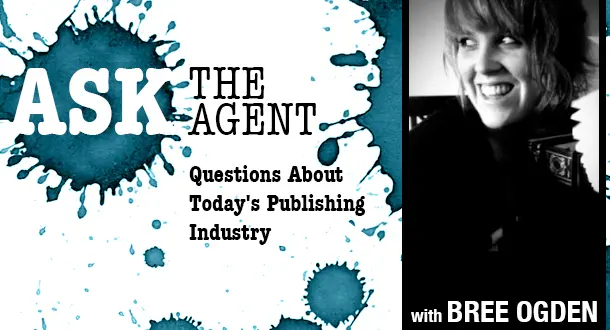Menu
Columns
Showing 3546 Columns
Showing 3546 Columns
July 10th, 2012

I'll admit it. I actually enjoyed high school. And before you picture me with a sparkling tiara on my head and a hulking football player on my arm, you should know that I wasn't popular and I never had a boyfriend. I was a nerd, actually, but I was lucky enough to find other nerds, and together, we made some great memories (after we finished our homework, of course).
Read Column →July 9th, 2012

Navigating the rough terrain of today’s publishing industry shouldn’t be a solo event. This week in Ask the Agent, I’ll explore and dissect two of the industry’s mysteries, straight from the shoulder. -----------------------------------
Read Column →July 9th, 2012

Just recently I finished the fifth book from the A Song of Ice and Fire series. (5,000+ pages in two months. Where's my medal?) After putting down A Dance with Dragons I was overtaken by feelings of malaise and depression. So many questions demanding answers. So many dangling plots! And answers will be a long time coming. There are still two books in the series forthcoming. Thus far, the first five books took George R.R. Martin 16 years to write. A Dance with Dragons came out last year. I am not holding my breath.
Read Column →July 6th, 2012

Books aren't just books anymore, and authors aren't just authors. They are—as obnoxious and bizspeak as it sounds—"brands," and they're being marketed as such. So if you're sick of hearing about Fifty Shades of Grey now, wait until your aunt asks for Fifty Shades lingerie this Christmas.
Read Column →July 6th, 2012

The Hitchhiker's Guide to the Galaxy has pervaded pop and geek cultures since its publication in 1979. Actually, since before that. The novel - the first in a "trilogy" that actually includes six books - began its life as a BBC radio series in 1978. The story has also been recorded as an album, a mini-series, a video game, and a feature film. As entertaining (and often contradictory) as each of these iterations have proven to be, the original novel of the series is the most lasting and resonant component of this sprawling epic.
Read Column →July 5th, 2012

One minute the house is calm and quiet; the twins are playing Legos in the living room, the puppy is asleep at my feet, my wife is out shopping for groceries, and all is well in the world. I sit at the computer and put the finishing touches on a short story that I’ve been writing all day. And then all hell breaks loose. Somebody hits somebody else, there is a loud crash of glass breaking, there are screams, the dog starts barking, the garage door opens, and my concentration is shot. Does this ever happen to you?
Read Column →July 5th, 2012

Recap: The Long & Winding Road is a multi-part essay about my endeavors to get an agent and publish my first novel. Part I discussed writing my first novel and seeking representation, Part II discussed "revision hell", Part III discussed talking to and landing an agent, Part IV discussed editing with an agent, and Part V discussed submitting to publishers.
Read Column →July 3rd, 2012

LURID: vivid in shocking detail; sensational, horrible in savagery or violence, or, a twice-monthly guide to the merits of the kind of Bad Books you never want your co-workers to know you're reading.
Read Column →July 3rd, 2012

As we Americans approach Independence Day, where we broke away from the British monarchy, I find myself thinking of the large segment of fantasy fiction that seems to want to run right back toward it. In much of fantasy, elements like monarchies and royal bloodlines are not just part of the landscape but are cherished and made into monuments.
Read Column →July 2nd, 2012

Every month I'll be toiling in the dank, dark mines of literary obscurity, scouring the catalogues of every major publisher to bring the LitReactor faithful a few choice titles hitting the shelves. The following is a brief look at what's worth checking out in July. Full disclosure: unless otherwise noted, none of the below books have been reviewed by myself or other LitReactor staff. These are just a few recommendations based on publisher's notes and my own opinions. Without further ado:
Read Column →🎼
Tell us about your book, and we'll give you a writing playlist
Take our 1 minute quiz to find your ideal tunes.